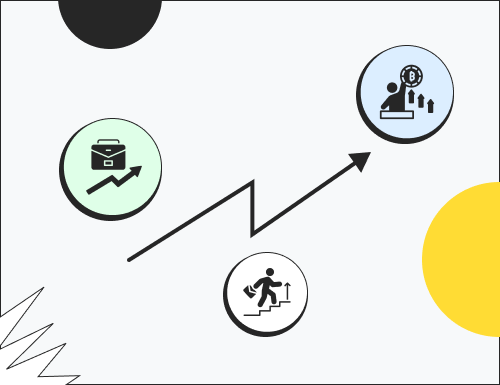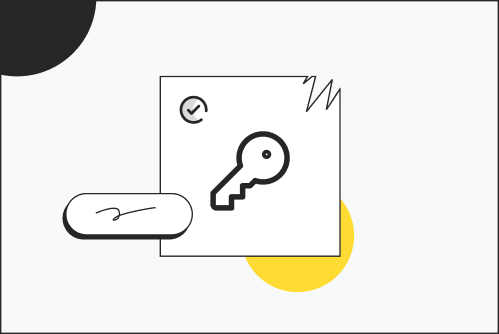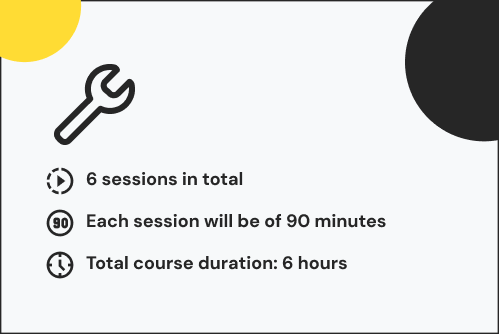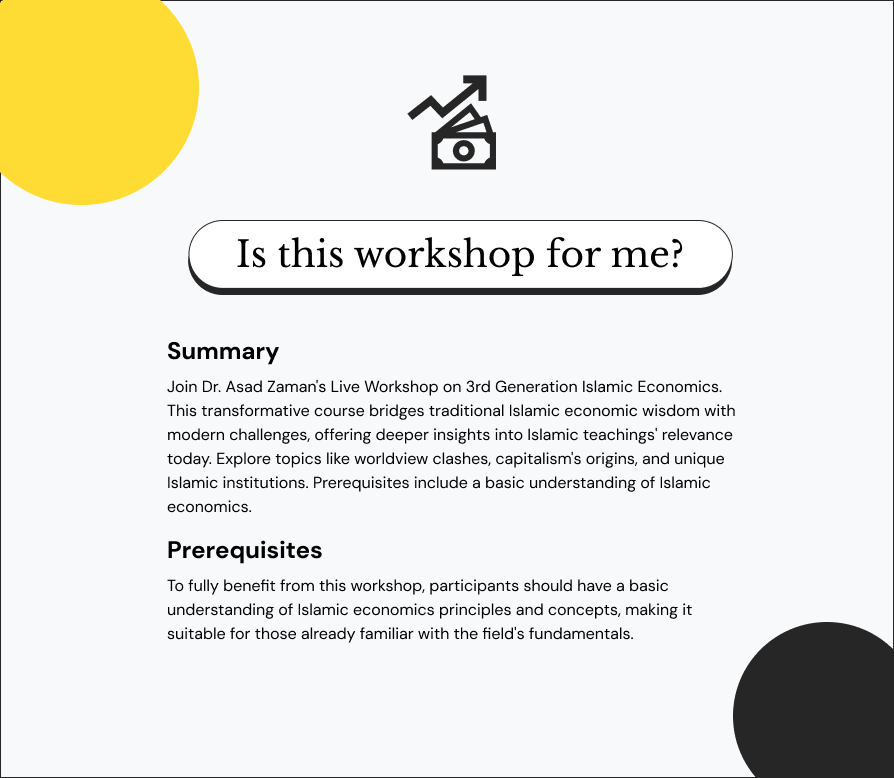About the Workshop
The historical transformation of once-ignorant Bedouin communities into global leaders through the teachings of Islam serves as a testament to the enduring power of these principles. This course asserts that these teachings retain their potency in the contemporary world. Our objective is to overhaul the conventional approach to teaching Islamic Economics, introducing what we term the "Third-generation Islamic Economics.
This term signifies a fresh perspective that bridges traditional Islamic economic wisdom with current challenges and opportunities. We aim to bring about a substantial impact in the lives of our students by providing them with a more profound understanding of these teachings and their applicability in the modern context. Our mission is to equip students with the knowledge and skills needed to navigate today's economic complexities, all while upholding ethical values.

Your Instructor

Alumni of MIT and Stanford University
Dr. Asad Zaman is a distinguished economist and academic leader, currently serving as the Vice Chancellor of the Pakistan Institute of Development Economics. With a remarkable educational journey that includes a Ph.D. in Economics from Stanford University and a rich teaching and research background, Dr. Zaman has earned recognition for his contributions to the field. His career spans esteemed institutions like the University of Pennsylvania, Columbia University, Johns Hopkins, Bilkent University, and Lahore University of Management Sciences. Dr. Zaman's extensive experience and expertise position him as a credible authority on Islamic Economics. His dedication to promoting an Islamic approach to economics and his significant impact on research and education in this field reflect his commitment to enhancing understanding and practice in Islamic Economics.

Some key takeaways from this workshop!

Ontological Clash
Understanding the conflict between European and Islamic worldviews on what exists and how we know it.
Distinctive Institutions
Learning about unique Islamic societal structures and exploring ways to implement them in the modern world.
Capitalism's Origin
Discovering how modern Western social sciences emerged to build a society without religious influence, leading to various crises.
Teaching Challenges
Addressing the difficulties faced by educators in adopting 3rd Generation Islamic Economics, including resources and teaching methods.
Holistic Social Science
Emphasizing the need for a comprehensive Islamic social science that covers politics, economics, society, and the environment.
Certificates
Opportunity for attendees to earn certificates of attendance and for teachers to gain competence certificates through exams and discussions.
Values Clash
Recognizing the contrast between Islamic values like cooperation and social responsibility and capitalist values such as greed and individualism.
Shifting Paradigms
Encouraging a significant shift from the prevailing 2nd Generation Islamic Economics, which adapts modern economic principles, toward a more authentic Islamic economic approach rooted in Islamic values.
Workshop Details

Sun, Sep 17, 2023
Sun, Sep 24, 2023
Sun, Oct 1, 2023
Sun, Oct 29, 2023
Sun, Nov 5, 2023
Sun, Nov 12, 2023
What is Knowledge? The Central Battle: Ontology and Epistemology
Historical Origins of Capitalism
Uloom-ul-Umran
Theoretical Foundations for Islamic Economics
Institutional Structures of an Islamic Society
How to teach 3rd Generation Islamic Economics?


